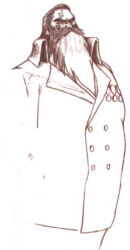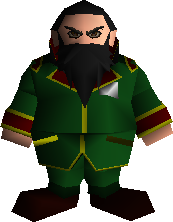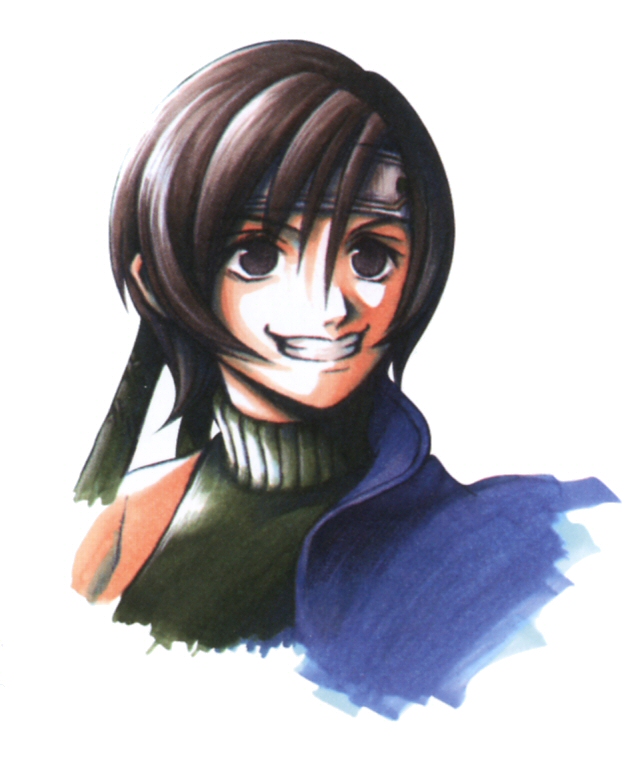![]()
Language is the house of being. In its home human beings dwell. Those who think and those who create with words are the guardians of this home. Their guardianship accomplishes the manifestation of being insofar as they bring this manifestation to language and preserve it in language through their saying. Thinking does not become action only because some effect issues from it or because it is applied. Thinking acts insofar as it thinks. Such action is presumably the simplest and at the same time the highest because it concerns the relation of being to humans. -Heidegger, Letter on “Humanism”
Our time in Junon concludes with a narrowly-avoided beatdown by a high-ranking Shinra official named for a complicated 20th-century philosopher.
Gya haa ha!
-Heidegger, FFVII

Heidegger messed up. He allowed Sephiroth to escape with Jenova, failed to catch Cloud and the others, and saw President Shinra killed on his watch. (Though Rufus might not mind that last part so much). With Hojo taking a leave of absence, dropping an additional investigation on him that he’s evidently ill-equipped to carry out, the stress is getting to him. Now, being dressed down by President Rufus at the end of the parade, he brays his trademark laugh and is publicly shamed for that laugh, of all things. Heidegger proceeds to lash out at the nearest target. He has nothing to say to his master, but as soon as Rufus is gone, he turns around and takes out his frustrations on the rank and file.

The historical Heidegger, too, is a troublesome figure. He famously says, “language is the house of being,” but his language is dense and confusing in the extreme. Hardly a welcoming abode. He may be one of the most poetic and insightful philosophers of the last century, but most readers will never bother with him. Even Sartre, for all his erudition, seems to have misunderstood him in the comparably lucid Existentialism is a Humanism. Besides the thorniness of Heidegger’s writing, he was closely aligned with the Nazi party, at least for a time.
The fact that he and his video game namesake are both part of an authoritarian state links them, as do their idiosyncratic modes of address. It’s as if the house of their language has been commandeered for barracks. In such a case, their range of expression gets limited; they cannot simply speak the truth. They become increasingly wishy washy, opaque, brash, propagandistic, or some combination of all these. The truth is no longer their master, a party leader is; in order to serve the ends of that leader and the party line, they do not serve the true ends of language.
Why did Heidegger believe that the German people enjoyed this position of world-historical significance? In the later writings Heidegger argues explicitly that “[t]hinking itself can be transformed only by a thinking which has the same origin and calling”, so the technological mode of Being must be transcended through a new appropriation of the European tradition. Within this process the German people have a special place, because of the “inner relationship of the German language with the language of the Greeks and with their thought”. (Quotations from Only a God can Save Us 113.) Thus it is the German language that links the German people in a privileged way to, as Heidegger sees it, the genesis of European thought and to a pre-technological world-view in which bringing-forth as poiesis is dominant. This illustrates the general point that, for Heidegger, Being is intimately related to language. Language is, as he famously put it in the Letter on Humanism (217), the “house of Being”. So it is via language that Being is linked to particular peoples.
Regrettable as it is, given the history, there’s nevertheless a compelling note of yearning to Heidegger’s dream of the “inner relationship” between languages. For Shinra’s Heidegger, that restriction Rufus places even on his most fundamental expression, his laugh, is pathetic. It’s heartbreaking in a way, even for this admittedly odious character. A laugh, more than a native language or the unspoken language of most gestures, reveals part of a character’s or a person’s soul, something that is so spontaneous and unguarded, if it’s a real laugh, that they’re vulnerable in that moment to the core of their being. Not that it’s OK to turn around and try to beat up on whoever saw that shameful exchange. Heidegger’s not being much of a leader himself, letting it get to him and taking it out on his underlings that way, rather than laughing it off once the boss is out of earshot.
Like the Turks, drowning their sorrows at the bar in town, he’s another one of these characters that you don’t get a crack at yet, either. Despite the provocation, you don’t fight Heidegger as a boss here. Nor do you get a second shot at Rufus. Cloud has to endure his gaze and accept his reward for doing the Simon Says/ PaRappa the Rapper game.
There’s another Enemy Skill Materia down there by the bar with the training room reprise, so as always, you are rewarded for exploring. The appearance of the training room ghost here elicits a pleasant thrill of the uncanny, that mixture of the familiar and strange for which video games are so potent a carrier. In the comfort of your living room at home, replaying this game which is so familiar, there’s nevertheless always some element of mystery, some ghost unable to return to the Lifestream who pops up. Materia is the sign of it, showing us to be open to the creative, the magical, in the most everyday surroundings.

Part of the spookiness here is the anxiety of being forgotten because we have as yet accomplished no great deed. Yet to the ghosts Cloud is still a hero. What if they’re right? Their asking these questions of him, of us, suggests we are doing a great thing even as we are doing something so simple as playing a SOLDIER, playing a game. If we were a little more conscious of the incredible luxury of playing a game, let alone hanging out at the bar, it would be to our benefit. If we saw the fun in the pursuit of truth, that would put philosophy in a different light entirely from that which is popularized or promoted (outside of Philosophiraga, that is :P). It feels like doing something real and lasting to look at the game again like this. It’s the difference between a Rufus with all his propaganda and the spiritual seekers of knowledge in the bar, or the Heidegger who kowtows to the Nazi party and the philosopher who dwells in his house in the clearing of being.
Speaking of the clearing–we skipped over it before, but you can also meet a secret character, Yuffie, in any forest outside Junon. In the guise of a random enemy encounter, she ultimately becomes a great image of the conflict and the give and take between East and West in FFVII. The shared mythologies and tropes, but also the new technologies of games, being developed cooperatively and marketed globally not in one place or the other but across both, bridging both–all this is suggested in the mini-game of courting Yuffie and her subsequent side-quest.

As strange as it seems, simply by saying certain things Cloud can either make her leave, stealing some of the party’s gil in the process, or make her stay, intrigued and willing to join your party. It’s a kind of microcosm of the long-running romance calculated in the background of Cloud’s interactions with the others. Whereas that one’s outcome only gets revealed at Gold Saucer, here we see the results in real-time. For better or worse, this is more along the lines of what it felt like talking to girls as a kid: there are several fatal ways to go wrong, and maybe, just maybe, one right thing to say to her… If you come on too strong, she’ll definitely go away. Initially, you have to seem kind of standoffish, but if you’re too rude, then she’ll go away, too. Reel it back in at a certain point and express some interest! Chances are, you’ll mess up at least once, but fortunately, you can find her again and retrace the steps to try again, getting a little further each time until that last step of choosing a name for the ninja. While repetition is fine, save states are a no go–if you try to use the save point she’ll depart at once, stealing your gil. That’s the first temptation, a rookie mistake, like wishing for more wishes.
Yuffie is an awesome character. Her weapons are long-range, her personality carefree and irreverent. On the cargo ship, you can get a double Materia growth weapon for her, so she’s a great party member to have at that point in the game. But if you didn’t manage to find her, you’re likely to find that Wind Slash a mystery, like that gun up in the tower of Kalm. It’s a weapon for a party member that you don’t have yet, leaving you wondering, what did I miss?
As a third in the party, I like Red XIII here, with his own double growth Magic Comb the first prize available at Fort Condor. He’s the first one that you see of your party before meeting the rest stowed away on the ship. When you perform the final send-off for Rufus, there he is, popping up in the background, letting you know that Cloud’s about to be reunited with the team. They all somehow made their way up to and onto the cargo ship, so that’s where we’ll pick up next time. Confined indefinitely on an enemy vessel in the middle of the open sea–what could go wrong?
![]() Wesley Schantz (the Bookwarm Mage) coordinates Signum Academy, writes about books and video games, and teaches in Spokane, WA. FFVII Myth & Materia comes out of his podcast series with Alexander Schmid and Vincent Reese.
Wesley Schantz (the Bookwarm Mage) coordinates Signum Academy, writes about books and video games, and teaches in Spokane, WA. FFVII Myth & Materia comes out of his podcast series with Alexander Schmid and Vincent Reese.
Did you enjoy this post? Consider becoming a Warrior of Light and join us in promoting honesty and quality to games writing through thoughtful, long-form critiques. We’re building a future for games writers to get paid and find a fairer and happier alternative to mainstream coverage and culture. See our Patreon page for more info!
